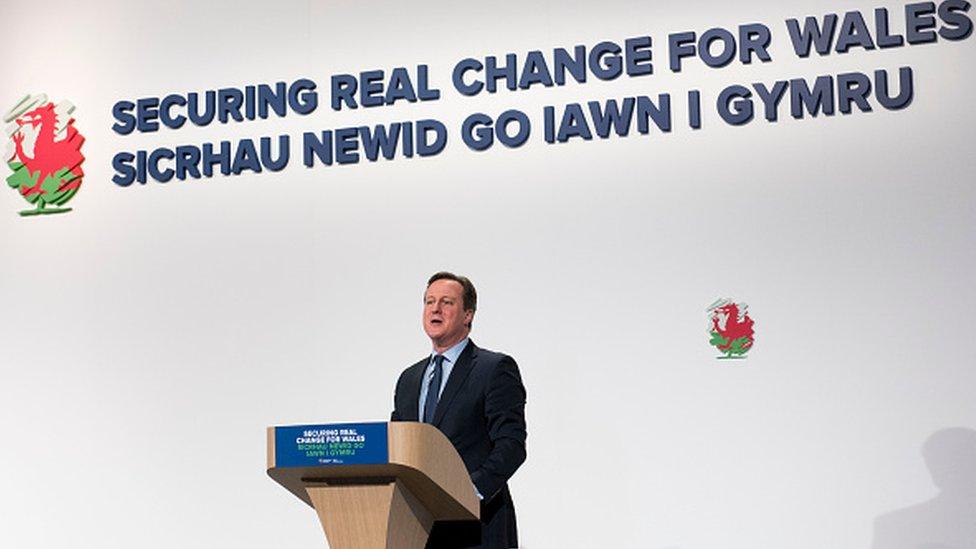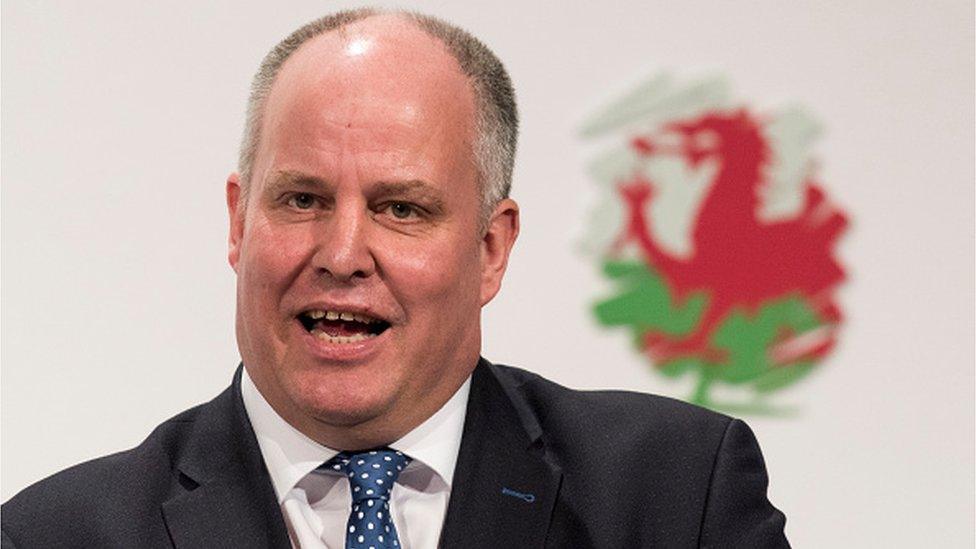The EU 'hand grenade'
- Published

Europe, predictably, dominated the Welsh Conservatives' conference in Llangollen, Denbighshire.
It dominated because of the extent to which David Cameron talked about the EU referendum in his speech.
And it dominated because of the inevitable focus on the disagreement between the prime minister and Andrew RT Davies, who is campaigning to leave.
Many on the Remain side of the debate were relaxed about the speech; after all, what do you expect from a man who needs the UK to vote to stay in to secure his political legacy?
Those on the Leave side were clearly unhappy that the prime minister had used the conference as a platform to set out the case to stay for the good of Welsh farming.
One senior figure likened it to a hand grenade going off amid a fragile truce on the EU within Tory ranks.
And then there were senior figures involved in assembly politics who were concerned that five years' worth of devolved policy development had been hijacked.
It was also clear to many that it had not been a speech to talk up Mr Davies as a future first minister (he was mentioned by name once by the prime minister, and even then among a group of others).
As the cameras showed only too well, it was an uncomfortable watch for Mr Davies, a farmer himself, to be lectured to on how an exit was going to have dire consequences for an industry he had spent his life working in.

The script for the Conservatives over the past year has been about bottling up the momentum generated in these eye-catching general election victories in Wales and using it in the assembly campaign.
What was not in the script was an EU referendum campaign running at the same time and the challenge will be getting their policies heard while the arguments rage over Europe.
On the policy front, plans to allow people to keep £100,000 worth of assets before paying care home fees was the most noteworthy.
In an interview I did with Mr Davies for the Sunday Politics Wales programme, he also said the only department's spending he could guarantee protecting was the NHS if he was in power.
The big question will be what the party would do on education.
Five years ago, the former leader Nick Bourne floated the possibility that education could be cut by up to 20% in order to ring-fence health, something that opposition parties will not let them forget.
The Conservatives insist that extra money would be made available to schools by funding them directly, rather than through local authorities.
They also say cash would be freed up by scrapping Labour's university tuition fee policy. Expect more detail in the manifesto.
There was also plenty of talk about the 408,000 people who voted for the Conservatives in Wales in the general election, more than the number who voted for Labour in the last assembly election.
The big problem of course is that turnout is so much higher in the general election but nevertheless it shows that the Tories' main job is not to persuade people to switch their allegiance from other parties.
Instead, what it needs to do is persuade its traditional supporters why they should be bothered to vote in the assembly election.